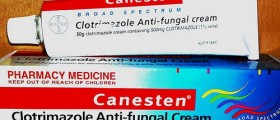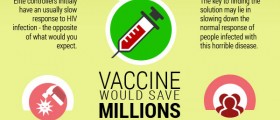
Antifungal medications are those used to treat the fungal infections in the body. There are many species of fungi, but just some can potentially cause diseases in humans. Fungal infections can affect any part of the body, especially if the person suffers from weakened immune system. The most commonly affected areas of the body are mouth, skin, nails and vagina.
Usually, fungal infections are caused by poor hygienic conditions. To prevent these infections, always ensure that you live in the clean environment.
Fungal Mouth Infection
Thrush is a fungal infection in the mouth, caused by Candida yeast (type of fungi). Candida is normally present in our body but it doesn’t cause illness until the immune system works properly. Once there is some problem, and our immune system weakens, Candida starts to grow, forming white patches in the mouth (thrush). This type of fungal infection affects newborns and very young kids and also elderly.
The initial treatments are lozenges and mouth rinses. The therapy depends on the health condition of the patient, seriousness of the fungal infection and also recurrence of the infection. This condition might also be treated with oral anti-fungal medications, especially if it’s rare infection or it already entered your blood and become systemic.
Pregnant women are not advised to use anti-fungal drugs, since they might harm the unborn child. The only reason to treat a pregnant woman from fungal infection is systemic fungal infection. Even then, women should be aware that oral anti-fungal medications can damage their health and also the health of their baby.
Toenail Fungal Infection
To treat toenail fungal infection doctors recommend using fluconazole or terbinafine. These anti-fungal medications should be used for 6 to 12 weeks for the first results, and sometimes even longer than that, but they can completely cure the condition. Always consult your doctor before you start using these drugs.
Yeast Infections
There are prescription and OTC drugs for yeast infections, available as creams, ointments or tablets. These medications are: clotrimazole, miconazole, butoconazole, terconazole and tioconazole. Make sure to finish the course of prescription medications completely, to avoid recurrent infections.
Consult your doctor before using these OTC products, especially if you experience some abdominal pain or if you are pregnant, HIV positive or a diabetic patient.
Adverse Effects of Anti-fungal Medications
Ketoconazole is rarely used these days, but it might cause recurrent fungal infections.
Fluconazole can cause allergies. Symptoms of allergy include: swelling, itching, breathing difficulties or abdominal pain and diarrhea.
If you are using anti-fungal shampoos or creams, be aware that sometimes they might cause irritation and itching.
Long term use of anti-fungal medications may cause liver problems, and patients are advised to test the liver condition periodically.








_f_280x120.jpg)








Your thoughts on this
Loading...